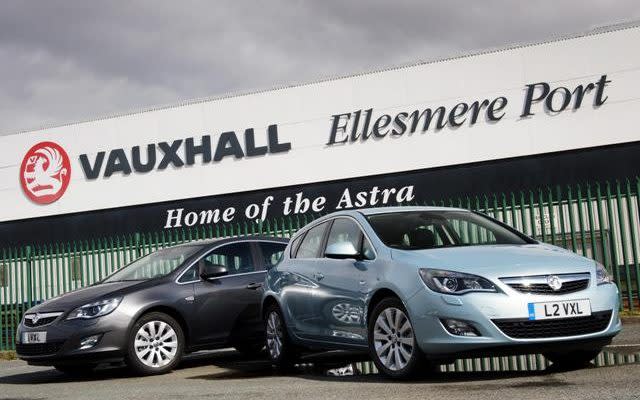Brexit and engine ban have 'changed the rules', Vauxhall boss warns

The future of Vauxhall’s plant at Ellesmere Port is in doubt after the Government “brutally changed the rules” on the sale of petrol and diesel cars, the boss of its parent company has said.
Speaking at an event to mark the merger of Vauxhall-owner PSA Groupe and Fiat Chrysler to create a new business called Stellantis, Carlos Tavares criticised the decision to ban the sale of new cars with internal combustion engines from 2030.
He said: “If the rules under which we operate are completely changed by a government... there is a limit for the headwinds. If there are so many barriers that there is no room to create value it is the ethical responsibility of the company to make a decision.”
The decision over the future of the Ellesmere Port factory, Cheshire would come "within weeks", he said.
However, Mr Tavares said a decision about investment for a new model or electric vehicles being built at the plant would be taken in light of “the UK government’s willingness to protect some kind of automotive industry in its own country, which is about their own strategy”.
As the Stellantis decides where to invest in making electric vehicles, Mr Tavares said it would have to consider “a pure logistic or paperwork respect, perhaps it is better to put it in continental Europe” - a clear reference to barriers created by Brexit.
He called Vauxhall “a strong asset” and praised workers at Ellesmere Port and the marque’s Luton van plant for their efforts to maintain production during the pandemic.

Describing the merger of PSA and Fiat Chrysler as a “shield” that would protect the business by creating scale and volume, Mr Tavares warned against “confusing” this with an ability to be profitable.
Asked about the impact of Brexit and the 2030 ban on internal combustion engines on Stellantis and Vauxhall's operations in particular, he said: “If a government or country creates a situation which destroys our business model by adding customs duty or constraints or bans of the sale of a kind or car … we are going to invest in different directions.
Ellesmere Port’s future has been in question since PSA bought Vauxhall and Opel from GM in 2017.
The Astra, which is built at the factory near Liverpool, is due for a refresh and putting money into producing a car there when most of the vehicles are exported could raise costs.
Mr Tavares said the merger of PSA and Fiat Chrysler to create a €50bn business selling more than 4m cars a year would generate savings of €5bn a year, but this would come without closing factories.

 Yahoo Finance
Yahoo Finance 